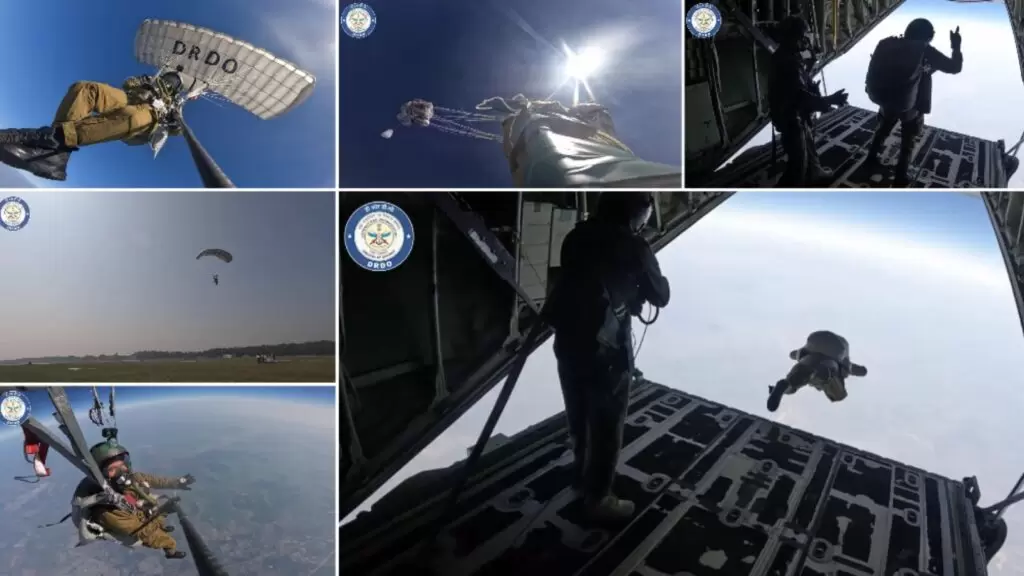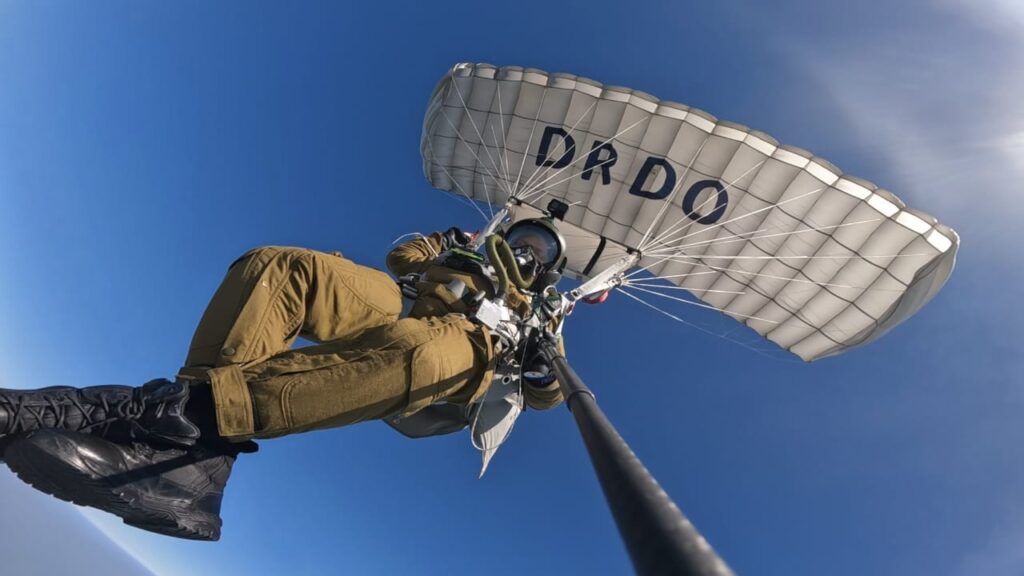India Achieves Breakthrough as DRDO’s Military Combat Parachute System Successfully Tested at 32,000 Feet

DRDO Successfully Tests Military Combat Parachute System
In a remarkable milestone for India’s defence technology, the Military Combat Parachute System (MCPS), indigenously developed by the Defence Research and Development Organisation (DRDO), has successfully undergone a combat freefall jump from an altitude of 32,000 feet. The test, executed by expert jumpers from the Indian Air Force, demonstrated the system’s efficiency, reliability, and cutting-edge design.
This successful trial marks a major advancement, as the MCPS is now the only parachute system in operational use by the Indian Armed Forces capable of deployment above 25,000 feet.

Indigenously Built with Advanced Tactical Features
Developed by DRDO’s Aerial Delivery Research and Development Establishment (Agra) and Defence Bioengineering and Electromedical Laboratory (Bengaluru), the MCPS incorporates several advanced tactical features. These include a lower rate of descent, superior steering capabilities, and compatibility with the Navigation with Indian Constellation (NavIC) system.
The system enables paratroopers to safely exit aircraft, deploy parachutes at predetermined altitudes, navigate precisely, and land at designated zones. With NavIC integration, the MCPS ensures freedom from foreign interference or signal denial, adding an essential layer of strategic autonomy.
Watch the video of this jump:
Achieving major milestone in critical defence technologies, Military Combat Parachute System (MCPS), indigenously developed by DRDO has successfully undergone a combat freefall jump from an altitude of 32,000 feet. The parachute system was deployed at an altitude of 30,000 ft,… pic.twitter.com/VPApxpYO3x
— DRDO (@DRDO_India) October 15, 2025
Boosting India’s Defence Self-Reliance
The successful development and testing of the MCPS reflects India’s growing self-reliance in the defence sector. The indigenous design not only reduces dependency on foreign equipment but also ensures longer operational life, minimal maintenance turnaround time, and affordability.
Raksha Mantri Shri Rajnath Singh congratulated DRDO, the Indian Armed Forces, and industry partners for the achievement. He hailed it as a “significant milestone for India’s indigenous defence capability.”
DRDO Leadership Commends the Team
Dr. Samir V. Kamat, Secretary, Department of Defence R&D and Chairman of DRDO, commended the team behind the success. He described the test as a major leap forward in India’s pursuit of self-reliance in aerial delivery systems.
The milestone, achieved through the efforts of test jumpers Wg Cdr Vishal Lakhesh, VM (G), MWO R J Singh, and MWO Vivek Tiwari, marks a proud moment in India’s defence innovation journey. With its capability proven at extremely high altitudes, the Military Combat Parachute System stands as a testament to India’s indigenous technological excellence in military systems.









